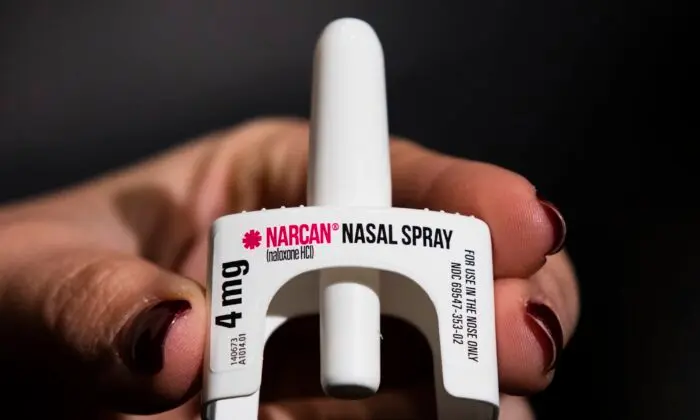Officials in Delaware are alerting the public to a rise in overdoses resistant to the well-known opioid reversal drug Naloxone (Narcan).
“In a typical period of time we may typically see five in that period, so [it’s] a significant increase. These patients are unique in that they are much more critically ill than most patients.
“Many of these are requiring long-term care in our intensive care unit. This is a very disturbing trend.”
Dr. Paul Sierzenski, chief physician executive for Beebe Healthcare, which is in Sussex County, said, “One of the troubling aspects of this set of ingestions is the severity of the patients and the significant amount of agents that are needed to try to reverse it, the amount of Narcan.”
Updated figures showed the trend continuing.
“From April 26 through May 5, there have been 96 suspected overdoses and three fatalities suspected from overdose in Sussex County,” Tim Mastro, deputy director of communications for the Delaware Department of Health and Social Services (DHSS), told the Salisbury News.
“In Kent County, there have been 55 suspected overdoses and three fatalities suspected from overdose during the same time period.”
On May 7, a Beebee Hospital spokesperson declined to release more figures, but said they were “still seeing cases every day but not the same rate as last week.”
Overdose Source
The Delaware State Police said they enlisted the Delaware National Guard to conduct testing on drugs found in those who had overdosed, as the guard’s 31st Civil Support Team had “the capability to test for a broad spectrum of chemicals.”Initial samples showed packages containing xylazine, bromazolam, fentanyl, quinine, and caffeine.
Fentanyl is a deadly synthetic opioid that is 50 to 100 times more powerful than morphine and is available as a prescription to treat severe pain typically associated with advanced cancer.
The drug has made its way into many street narcotics around the country, according to the Centers for Disease Control (CDC).
Xylazine, also known as “tranq,” is a tranquilizer increasingly being found in the illegal drug supply and is linked to overdose deaths, according to the CDC.
“Due to its impact on the opioid crisis, fentanyl mixed (adulterated) with xylazine has been declared an emerging threat by the White House’s Office of National Drug Control Policy,” the CDC noted on its website.
Bromazolam is a “designer” type of benzodiazepine that was synthesized in 1976 but never approved for therapeutic use. Since 2016, Europe has seen a persistent increased usage of it in mixed illicit drugs that include fentanyl.
“The number of law enforcement seizures in the United States that involved bromazolam increased from no more than three per year during 2016–2018 to 2,142 in 2022, and 2,913 in 202,” the CDC noted.
Quinine, used to treat malaria, is obtained from the bark of the cinchona tree. Caffeine is another stimulant sometimes added to drug combinations by illicit drug producers.
“We are seeing a greater number of patients being treated for suspected overdose but, more notably, a significant increase in the severity of the effects of overdoses,” said Delaware Division of Substance Abuse and Mental Health (DSAMH) Director Joanna Champney in the May 3 press release.
“This severity is reflected in a greater percentage of patients needing admission with many of them requiring intubation, ICU level care, and multiple days in the hospital.”
Comprehensive Collaboration
The state’s response has been multifaceted, involving ramped-up distribution of Narcan (naloxone), community outreach, and heightened precautions for emergency responders.The Delaware Division of Substance Abuse and Mental Health (DSAMH) has distributed thousands of Narcan kits to healthcare facilities and is coordinating street outreach efforts.
“We are directing our efforts to where they are most needed and ensuring that our emergency response teams are well-equipped and informed,” said Dr. Joanna Champney, director of DSAMH.
Dr. David Tam, president and CEO of Beebe Healthcare, highlighted the collaborative efforts: “This escalating health crisis underscores the vital importance of our ongoing partnerships with state health and police departments to ensure that we can provide the necessary care and support to our community.”
Authorities urge the public to exercise extreme caution, avoid unknown substances, and report any suspicious activities or overdose cases to emergency services immediately.
The Delaware Office of Emergency Medical Services recommends that anyone administering Narcan wear gloves and avoid direct contact with visible powdered substances.
The Epoch Times did not hear back from the U.S. Drug Enforcement Agency (DEA) before publication on whether or not the drug combination was seen elsewhere or was a relatively new phenomenon.







